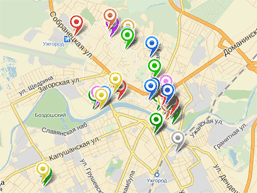International Scientific and Practical Conference "Proactive Tolerance as a Way to Peace" has started at UzhNU
On Friday, September 13, 2019, UzhNU launched the International Scientific and Practical Conference "Proactive Tolerance as a Way to Peace". It is held as part of the the project which is implemented by UzhNU together with the Ludwig Maximilian University of Munich (Germany) and addresses the idea of tolerance at the borders of Europe.
The conference will last for two days. The conference programme consists of five plenary sessions and discussions, attended by the representatives of the authorities, religious denominations and civil society institutions.
The Vice-rector for Academic Affairs and Research, Doctor of Political Science Myroslava Lendel noted: “The goal of the project is to develop the concept of proactive tolerance, which will be presented today. Participants of the conference will share their thoughts and discuss how this concept can be put into practice. Of course, we will be discussing the pressing issue of tolerance at a time when there is an armed conflict between Ukraine and Russia. Therefore, we are looking forward to a fruitful discussion among the conference participants, and we hope that this conference will launch other projects that will be implemented together with the German partners."
The project expert, PhD in Political Science Ihor Vehesh emphasizes: “We are now halfway through the project. During the first year, we worked on the theoretical development of the concept of proactive tolerance that would be most appropriate for Ukraine. So the first stage is over, we have developed the necessary concept and we are now about to start the second stage - the introduction of the concept of tolerance into the Ukrainian socio-political environment. We are planning to work with so-called tolerance agents, with key social institutions capable of implementing the idea of tolerance among the population. These are the representatives of educational institutions, media, and religious denominations."








